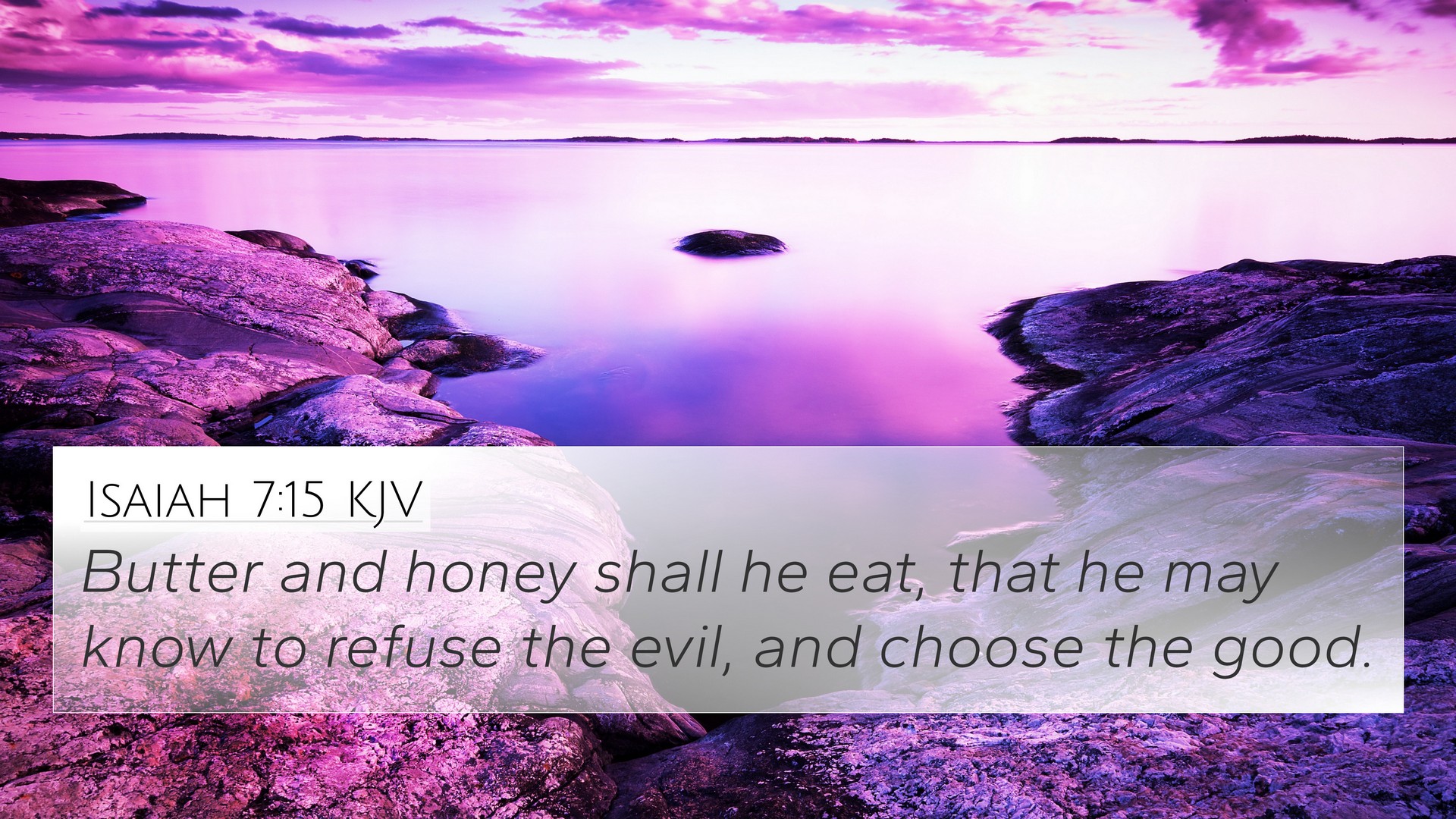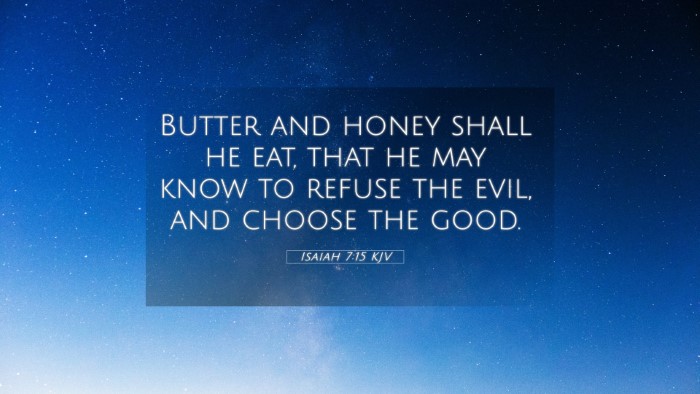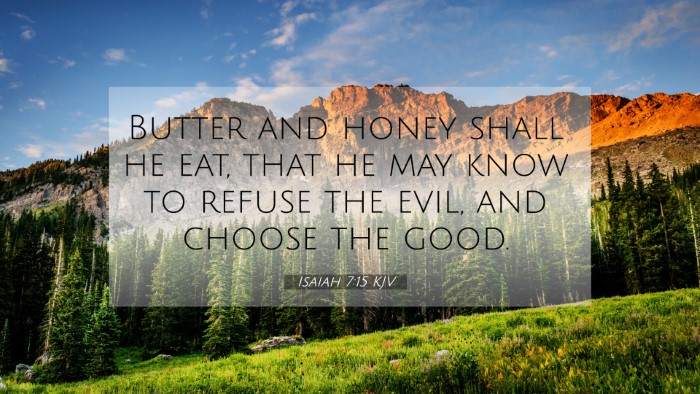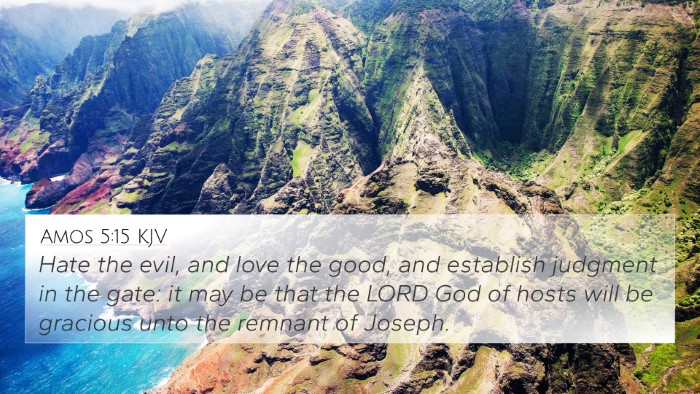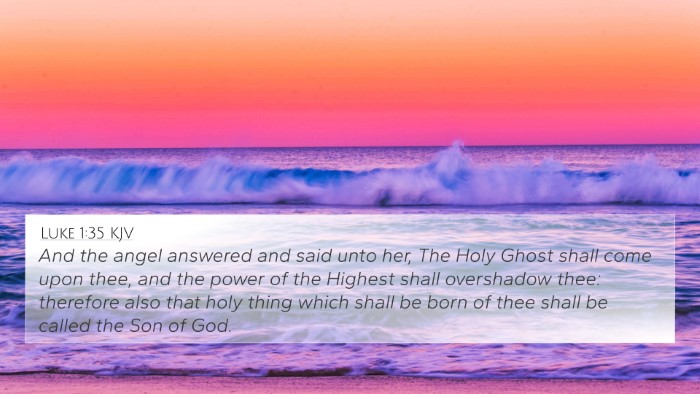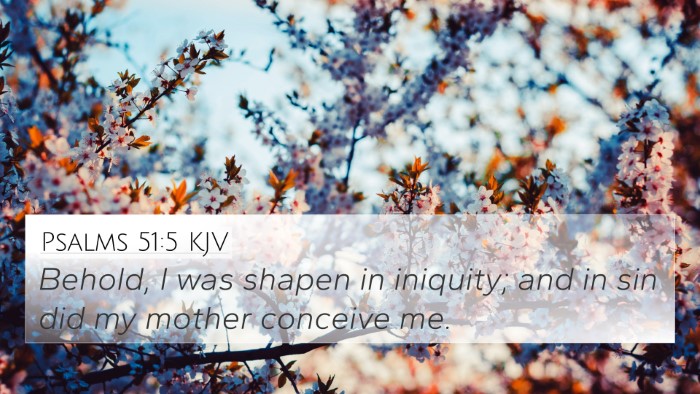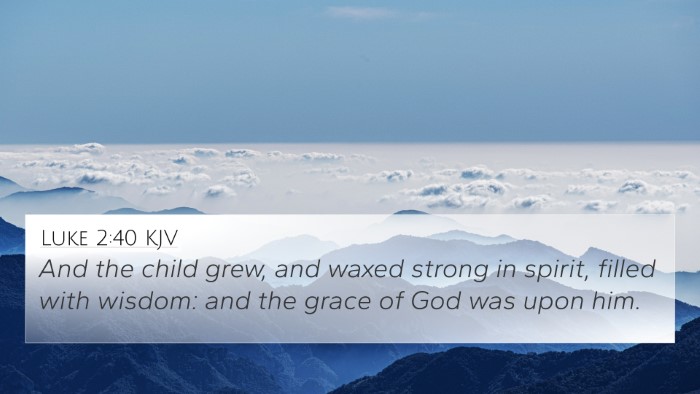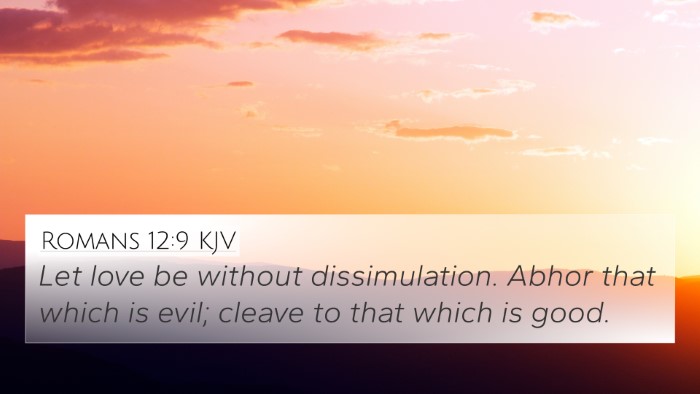Understanding Isaiah 7:15: A Comparative Analysis
Isaiah 7:15 states: "Butter and honey shall he eat, that he may know to refuse the evil, and choose the good." This verse, while brief, encapsulates deep theological insights and prophetic significance. The following analysis combines insights from public domain commentaries to provide a comprehensive understanding of this scripture.
Context and Background
The book of Isaiah is filled with prophetic sayings that address the nation of Israel during a tumultuous period. Isaiah 7 specifically relates to a time when the kingdom of Judah was under threat from external enemies. The promise of a sign—here, the child who would eat butter and honey—serves as assurance of God's intervention and sovereignty.
Verse Analysis
-
Butter and Honey:
The mention of "butter and honey" by Isaiah suggests a sustenance that is both simple and nourishing. According to Matthew Henry, this symbolizes the `comforts of a humble life`, indicating that the child would live in simplicity but with satisfaction. Albert Barnes also notes that these foods represent the blessings found in the land promised to Israel.
-
Knowledge and Discernment:
By stating that he "may know to refuse the evil, and choose the good," the emphasis is on moral awareness and discernment. The child’s diet is not merely about sustenance but reflects the growth into wisdom and understanding of right and wrong. Adam Clarke points out that this can be seen as a metaphorical growth leading to moral choices and spiritual maturity.
Thematic Connections
This verse interconnects with numerous other scriptures, creating links that deepen our understanding of its implications:
- Hebrews 5:14: "But solid food is for the mature, who by constant use have trained themselves to distinguish good from evil." This connects with the introduction of discernment in Isaiah 7:15.
- Proverbs 2:10-11: "For wisdom will enter your heart, and knowledge will be pleasant to your soul. Discretion will protect you, and understanding will guard you." This passage speaks to the necessity of wisdom in making moral choices.
- Matthew 4:4: "It is written: ‘Man shall not live on bread alone, but on every word that comes from the mouth of God.’" This emphasizes the essential nature of spiritual nourishment.
- Isaiah 8:20: "To the law and to the testimony! If they do not speak according to this word, they have no light of dawn." This highlights the importance of grounding decisions in God’s commandments.
- James 1:5: "If any of you lacks wisdom, you should ask God, who gives generously to all without finding fault, and it will be given to you." This aligns with seeking divine guidance in decision-making.
- Romans 12:2: "Do not conform to the pattern of this world, but be transformed by the renewing of your mind." This fosters the theme of choosing good amidst evil.
- Philippians 1:10: "So that you may be able to discern what is best and may be pure and blameless for the day of Christ." This verse encapsulates the journey toward discernment that begins early in life.
Cross-Referencing Biblical Texts
Utilizing a Bible concordance and cross-reference guide can help identify these connections between scriptures. This not only enriches personal Bible study but enables a deeper thematic exploration across the biblical narrative. Here are some additional insights regarding effective methods for cross-referencing:
- How to use Bible cross-references: Cross-references allow readers to see how different verses interact, providing a fuller understanding of spiritual truths.
- Bible reference resources: Use tools like topical handbooks to gather related scriptures effectively.
- Bible chain references: Building chains of related verses reinforces themes and messages found throughout the Scripture.
Conclusion
Isaiah 7:15 is a profound declaration of God’s assurance amidst crises. The references to nourishment, moral discernment, and guidance highlight essential themes in Christian teaching. By exploring related verses and employing a cross-referencing methodology, one can unveil richer insights into the life of faith.
In summary, the connections between Bible verses, such as those drawn from Isaiah 7:15, serve as powerful tools in understanding God’s Word and applying it to our lives.
